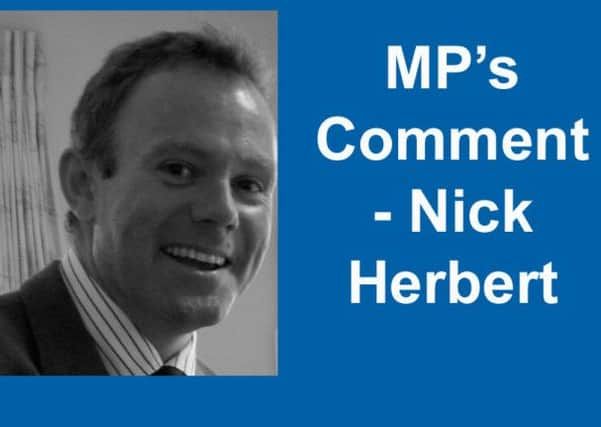Nick Herbert: Flooding calls into question housing plans


My constituency has seen river flooding, mercifully not as severe as in other areas, but still awful for those affected, and the concern is that it could get worse.
However, surface water flooding, caused by saturated ground and inadequate drainage, continues to be a problem.
Advertisement
Hide AdAdvertisement
Hide AdOver 100,000 properties in West Sussex are in areas susceptible to flood risk, the vast majority from surface water flooding.
Sayers Common, for instance, has once again seen sewage systems overflowing, with watercourses polluted and foul water rising up through sinks and lavatories.
I held a summit two years ago to draw attention to these problems in our villages, and we still need action.
Flooding has called into question the sustainability of housing plans in the County. Developers continue to push the Mayfield new town of 10,000 houses between Henfield and Sayers Common, despite flooding in the area.
Advertisement
Hide AdAdvertisement
Hide AdLast month, Arun District Council was forced to reconsider its proposed strategic sites for development, partly as a result of flooding in the area between Barnham and Eastergate where a new town of 2,000 houses was proposed.
I raised these issues with the Communities Secretary, Eric Pickles, in the Commons this week, asking that, in setting housing numbers, councils should be able to take into account the adequacy of infrastructure, so that current problems don’t become even worse in the future.
We need to be resilient for increasingly severe weather events, which won’t necessarily be flooding - we had serious drought only a few years ago. In Arundel, I convened a local summit to discuss how the upgrading of river defences will be taken forward. Funding these is a real issue, with a heavy burden falling locally.
It’s time for a proper national discussion about the levels of long term investment necessary to protect homes and businesses, and how this should be organised. This isn’t a false choice between helping flood victims and international aid.
Advertisement
Hide AdAdvertisement
Hide AdOf course, everything possible can and must be done to provide relief at home, as the Prime Minister has promised. That doesn’t require us to stop helping the poorest people in the world who are dying or suffering in their millions.
It does require us to provide immediate help at home, re-think unsustainable housing plans, and agree a concerted programme to ensure our long-term environmental security.
If you would like to get in touch with me, please write to me at the House of Commons, London, SW1A 0AA, or e-mail me at [email protected]